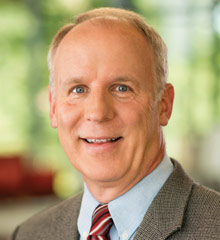In the first of these articles, we looked generally at a major new survey of religious attitudes among Americans (June 2008) by the Pew Forum on Religion and Public Life.
A number of the findings here mirrored results from previous polls, showing that over 90% of Americans believe in God (allowing for different conceptualizations), 70-80% have some sort of connection with formal organized religions, and about 40% claim (the operative word) to attend worship on a weekly basis. Three out of four Americans believe in life after death. Majorities believe the Bible is “authoritative” and that religion is “important” to their daily lives. At first glance, it would seem that religious life in America is doing quite well indeed.
And yet, there are reasons for the leaders of American religion (that includes you, working preachers) to be concerned, for the survey shows that many Americans have an ambivalent relationship with organized systems of religion. Though Americans may well believe that religious ideas and practices are very important to their lives, they often hold attitudes that are in conflict with their own religions or trust their own judgement in these matters more than they are willing to listen to you. Scholars of American religion have long noted the disconnection between what systems of religion (organized religion) actually teach, and what the members of that religion actually believe (popular religion). Individuals often cobble together their own religious judgments into a sometimes coherent system, which may or may not mirror that of the denomination to which they profess to belong. The rise of geographic and social mobility, as well as the demise of religious “brand-loyalty,” are factors which further complicate this situation.
Some of the most striking results concern the questions of religious authority and its relationship to systems of organized religion. When surveying the 83% of those Americans who claim to be “affiliated” with one or another religious system, they were asked about the question of religious exclusivism; namely, is there more than one way to eternal life? Of the affiliated, 70% agreed that “many religions can lead to eternal life,” including 66% of Protestants, 79% of Roman Catholics, and even 39% of Mormons. When asked to respond to the statement, “There is more than one way to interpret the teachings of my religion,” fully two-thirds (68%) of affiliated agreed. These two results suggest that while religious members might belong to a particular religious tradition, they often do not feel obliged to hold that traditions’ theology as their own personal faith. Witness the numbers of Roman Catholic Americans, for example, who think the Pope is a very wonderful person, and yet feel very free to personally disagree with the teachings of the Pope on matters of Catholic theology and practice.
This is simply a very visible aspect of a wide-spread phenomena, that one can be a member of a tradition yet not feel constrained by its teachings or authority. Americans still hold religion to be a positive force in the world. 62% of all those surveyed rejected the idea that “religion causes more harm than good” in the world. Religion is seen as a positive social force, even among the 18% of Americans who are unaffiliated (even 20% of atheists agreed with this statement!). As well, 78% of Americans agree that there are absolute standards of morality (right and wrong) that are applicable to all individuals. But they seem not to believe that religious systems are the source of this universal morality, but instead find this morality within themselves. When asked for the source of this universal morality, 52% of all Americans located it in “practical experience and common sense,” while only 29% found their guidance in “religious teachings and belief.” Just 41% of Protestants, 22% of Roman Catholics, and only 10% of Jews found religion to be their primary source for moral teachings!
This is quite startling; Americans have long believed that the primary role for religion in public life is to inculcate morality, but a majority of Americans seemingly look elsewhere than their religion for moral guidance. The majority looks to “practical experience and common sense,” that is, an innate sense of right and wrong, which is, as we saw earlier, an absolute and universal morality common to all. Americans seem to believe in a universal morality which is inborn and confirmed by experience. Religious systems have little to do with this, since Americans are free and quick to disagree with their teachings.
Religious professionals then are in a quandary when it comes to proclaiming the theological and ethical message that their tradition holds. They may wish to insist on the particularities of their distinct theology, but most of those who are listening to their proclamation feel no need to agree with them. It would seem that even our own members must first be persuaded that these teachings are relevant to their lives and will often only be so persuaded if the message of the preacher mirrors that of their own “practical experience and common sense.” Whatever authority you may have, it is a personal and persuasive authority, not linked to your tradition or position.
More to come in Part Three of this series, “Survey Sez.”

